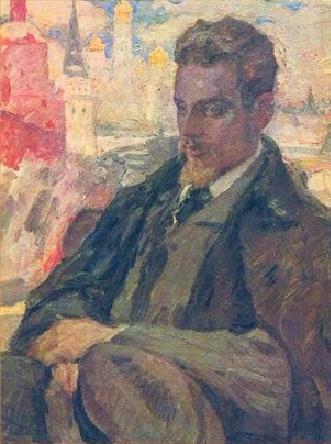Richmond Read-along 56

Welcome back to the Richmond Read-along! Today we are reading a poem by Rainer Maria Rilke. Born in 1875, Rilke was sent to military school – a miserable place for such a sensitive boy – but by the time he finished his schooling he had already published a volume of poetry and set his sights on becoming a writer. He travelled extensively throughout Europe and was influenced strongly by the artists of the time, particularly Rodin.
Rilke’s lifelong preoccupation was with the place and function of the poet in society. Decidedly anti-Christian, he instead created his own set of beliefs, in which the artist was a prophetic and God-like figure. Art, in transforming the experienced world, became a saving grace to humanity that would bring them nearer to an ultimate God-like state. Art, and poetry, became more than a vocation; it was holy work, deeply moral and of the utmost importance. Rilke’s style was primarily aesthetic, but with a powerful moral conviction behind the belief in beauty. Driven by his beliefs, he experimented with unique and original forms of lyricism, pushing poetry to its boundaries and in the process producing some startling original and beautiful work.
Today we are reading “In cassocks clad:”
“In cassocks clad I have had many brothers
In southern cloisters where the laurel grows,
They paint Madonnas like fair human mothers
And I dream of young Titians and of others
In which the God with shining radiance glows.
But though my vigil constantly I keep
My God is dark—like woven texture flowing,
A hundred drinking roots, all intertwined;
I only know that from His warmth I’m growing.
More I know not: my roots lie hidden deep
My branches only are swayed by the wind.”
You can find this poem on Project Gutenberg. Read more about Rilke at The Poetry Foundation.
Join us tomorrow for the next Richmond Read-along!
